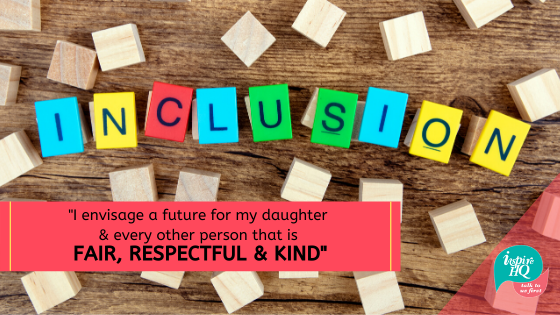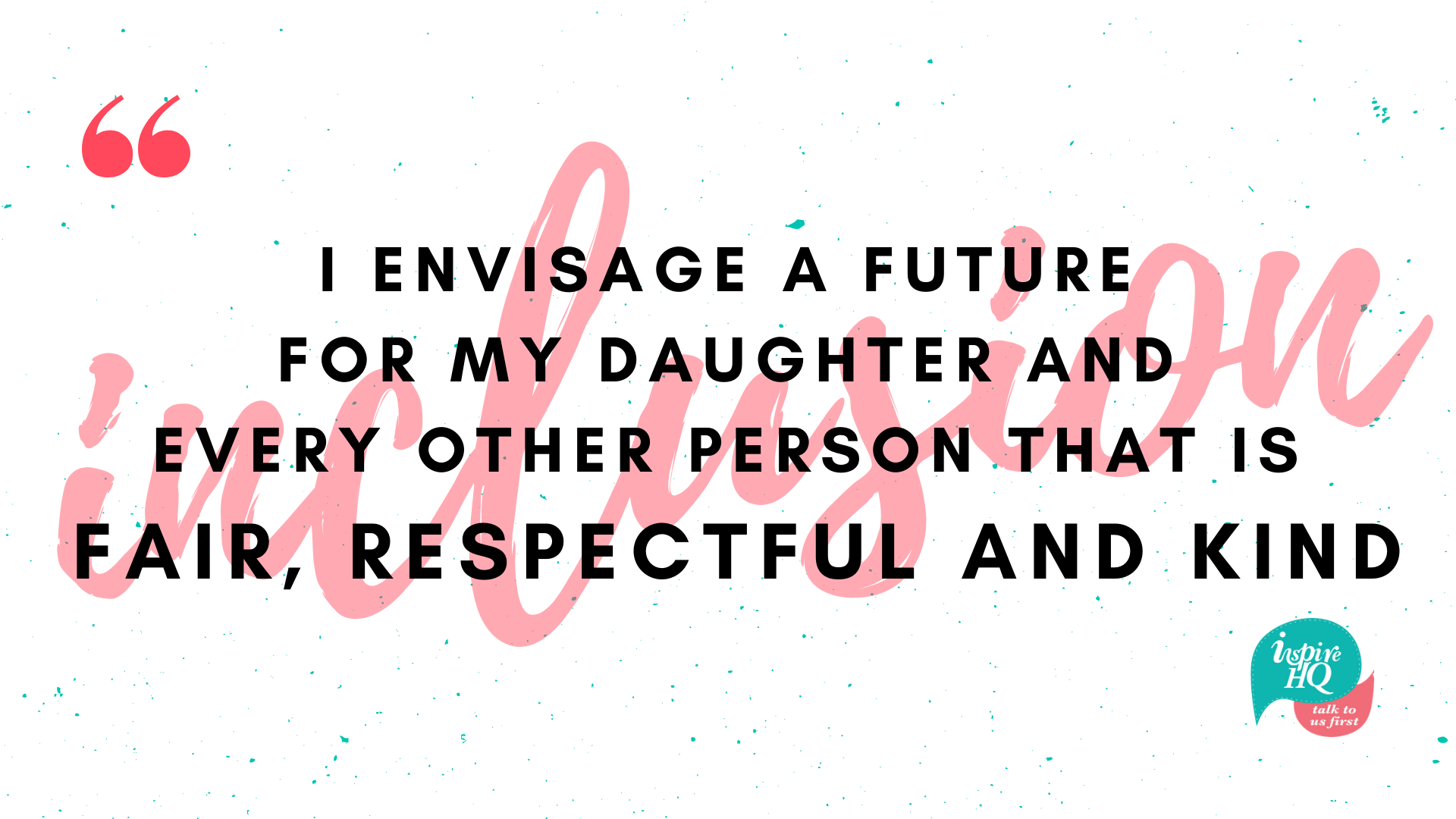I am no expert on inclusion, I haven’t studied it, or analysed the psychology behind it. But I have experienced it. I have experienced the raw emotion and deep fulfilment that comes from it.
I have seen it demonstrated so effortlessly in the younger generation. A generation where they have no awareness that they are even practicing inclusion! A generation where it comes completely natural to them and they don’t even question it. They are not following any policies, or avoiding any fair work claim, they are simply doing it out of kind nature and acceptance.
It’s a generation of compassion and one where they are willing to include someone regardless of their barriers.
There is no reason why this cannot transfer into the workplace.
I speak from the heart, from firsthand experience as the mother of a primary aged child with a disability and yet her peers in mainstream school have never questioned it, and embrace her for exactly who she is. They even go one step further. They seem to have a level of respect for her knowing that she is fighting bigger battles than most. Their natural instinct is to support her and involve her, rather than exclude her.
As adults, we can learn from this. Occasionally, we look at people’s barriers and consider how they will impact the workplace, before we look at their attributes and how they can enhance the workplace.
Organisations have come a long way in this space, but we still have so much more to learn. I don’t have all of the answers but I am driven to see this space develop. I envisage a future for my daughter and every other person that is fair, respectful and kind. A culture where it is accepted to not fit into the ‘mold’ and where employers and society show compassion, and accept everyone for who they are.
Some tips that I would encourage an organisation to consider;
1. An inclusive workplace makes everyone feel better!
Employees in Inclusive workplaces are likely to be more engaged, driven and productive. Research shows business’ are also more likely to improve their bottom line if they promote an inclusive and diverse workplaces culture.(1)
2. Opportunity
People from all walks of life present a substantial opportunity for businesses to diversify their workforce in an accessible and inclusive way – and it’s a sound business decision to consider!
3. Review your recruitment processes
Are your recruitment processes barrier-free? Sometimes recruitment processes themselves can be a barrier for people to apply. Ensure that end to end recruitment processes are able to be modified and adapted to appeal to the widest possible talent pool.
4. Display a positive reputation and image
Employees and customers are more loyal to businesses who display that they value diversity and inclusion, and have a workforce that is a true representation of society.
5. Create opportunities for conversation
Ensure that you use inclusive language in the workplace. Encourage open communication where employees feel comfortable to express themselves knowing that everyone will accept them.
I have always embraced the fact that my daughter is exactly the person that she is supposed to be. And…..if I am lucky, she might be the one who turns me into the person that I am meant to be!
There are many people out there fighting secret battles, so as a community and in the workplace….please be kind.
Disclaimer: The material contained in this publication is of a general nature only. It is not, nor is intended to be, legal advice. If you wish to act based on the content of this publication, we recommend that you seek professional advice.


